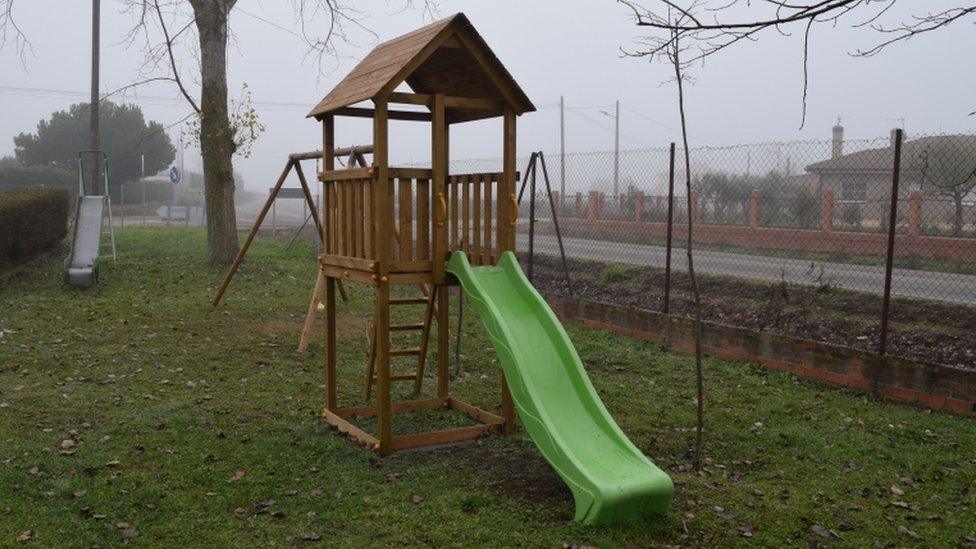Spain anger over 'energy poverty' deaths
- Published
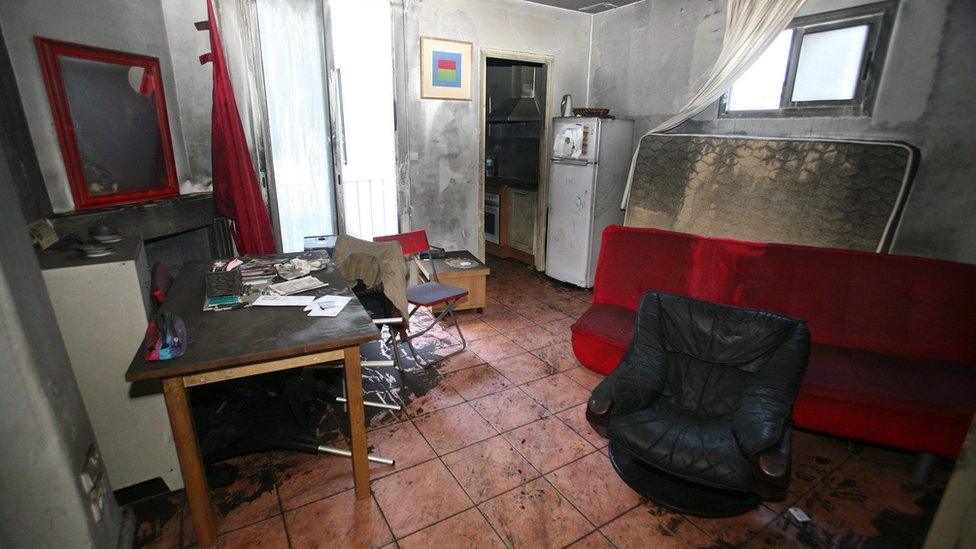
Passions have been stirred by the death of an 81-year-old woman in a house fire started by candles she was using after her power was cut off
Spain's economy may be recovering, but the recent deaths of a 12-year-old girl and an 81-year-old woman in house fires are reminders of the hardship that millions of households still face in the country's deep-rooted crisis.
"Rosa PV" (as she is described in the media) died alone, choking on fumes from a fire started by one of the candles she used for light in her flat in the city of Reus, south of Barcelona, early last Monday.
It emerged that her electricity had been cut off for non-payment of bills. Rosa's solitary plight caused protesters' voices to be raised in unison against energy poverty as winter approaches.
There have been demonstrations of sorrow for Rosa and anger at the failure of the authorities to take care of such an elderly citizen, in Reus, Barcelona and elsewhere this week.
The leader of the anti-austerity Podemos party, Pablo Iglesias, said his "blood was boiling" over the failure of Spain's administrations to stop companies cutting off basic supplies to the vulnerable.
A week before the death of Rosa, fire also claimed the life of 12-year-old Lucia Fuoli after an apparent short-circuit. The blaze was possibly caused by the use of a defective electric heater and it engulfed the fifth-floor Zaragoza apartment.
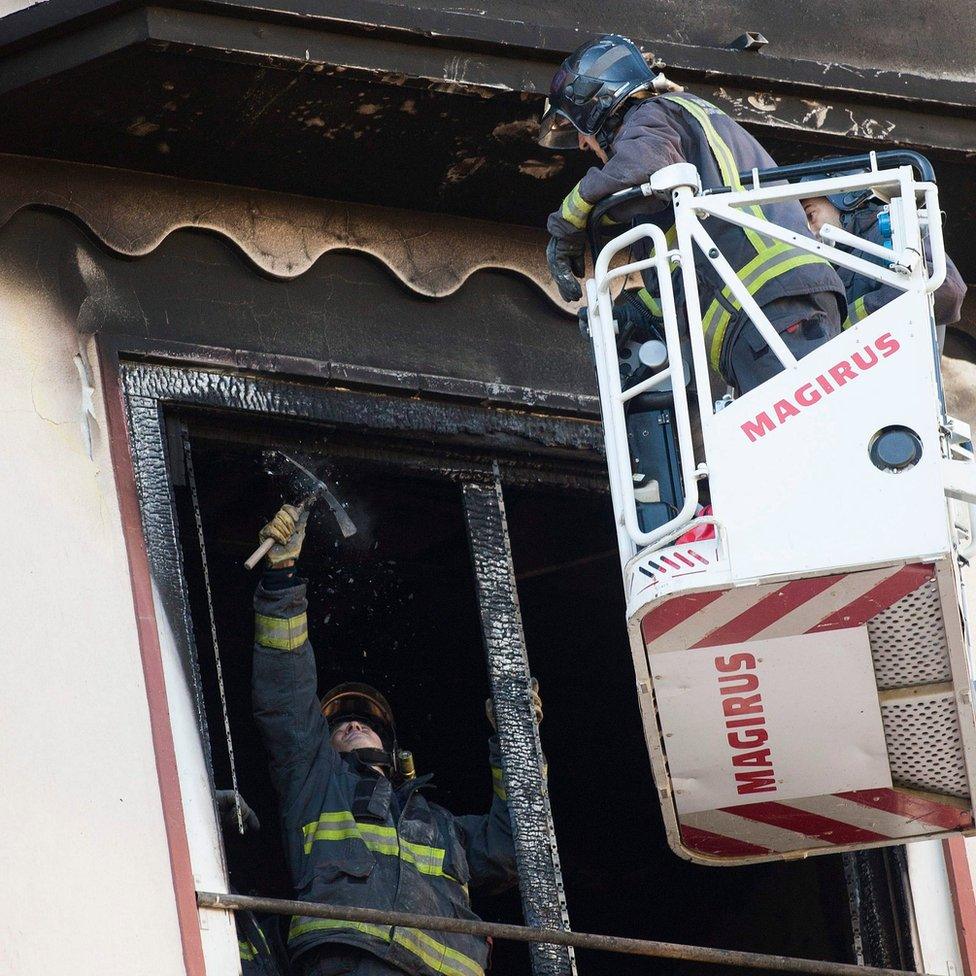
Firefighters inspect the charred window of the Zaragoza building where 12-year-old Lucia Fuoli died in a house fire
The fire in the living room cut off Lucia and her father from the door to the apartment. Clambering out of a patio window at the back of the building, seeking safety from the flames, Lucia slipped and fell while her father helplessly watched, clinging on to a television antenna.
"In November temperatures go down and people need more heating. Sadly in many homes, families simply cannot meet the costs of this increased expense," said Fernando Cuevas, head of a project for the extremely vulnerable, run by the NGO Cruz Roja (Red Cross).

Death in the dark
Rosa, an 81-year-old who lived alone, used candles for light after her electricity was cut off. On the evening she died, she fell asleep with a candle still burning. According to the firefighters who found her, she woke up and found her mattress on fire, but fell to the floor as she tried to leave the room, dying of asphyxiation. Attempts to resuscitate her failed and she was pronounced dead at the scene. Rosa had been visited by social workers, but not apparently in recent weeks since her electricity had been cut off.

Spain is set to end 2016 with GDP growth above 3% for the second year running, but with unemployment still standing at 19% and low-wage temporary jobs making up the majority of new posts. The poorest remain extremely vulnerable.
"We attended to 500,000 people in extreme poverty in 2013 and last year that was up to 650,000," says Mr Cuevas. "The macroeconomic statistics are just not reaching the homes of the most vulnerable."
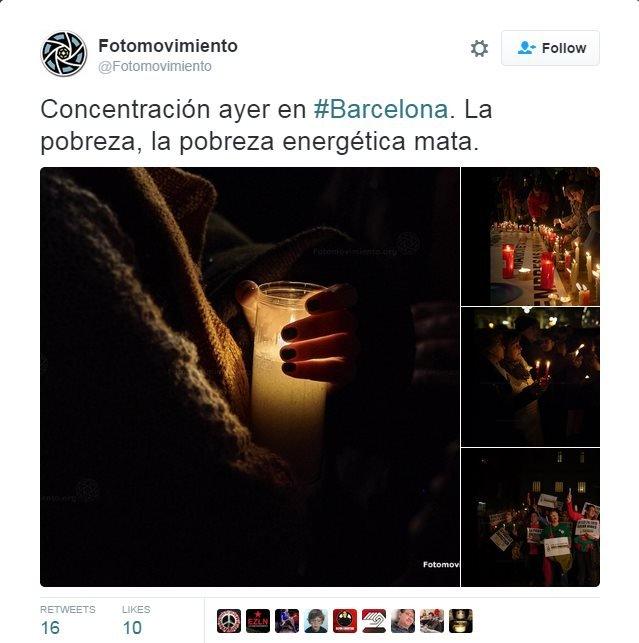
"Demonstration yesterday in #Barcelona. Poverty, energy poverty kills," tweets @Fotomovimiento
In 2014, 11% of Spanish families, or some five million people, could not afford to heat their homes adequately in the winter months, according to a study by the country's Environmental Science Academy. The study found that the average price of gas and electricity had increased by 67% and 73% respectively, since the onset of Spain's economic crisis in 2008.
So whose responsibility is it to protect the vulnerable from the cold and dark?
Cruz Roja complains that unlike in Britain, France, Germany and Italy, Spain's government does not intervene to ensure low-income households are not cut off if they cannot pay the bills.

Catalonia's poverty measures
In 2013 Catalonia's regional government passed a law under which families with low incomes could suspend payments on their energy bills for a time.
Spain's conservative government under Prime Minister Mariano Rajoy appealed against the law, arguing that the Catalan administration had exceeded its authority, leading to the constitutional court quashing the initiative in April 2016.
A second anti-poverty law passed by the Catalan parliament in 2015 introduced the obligation on utility companies to inform social services before cutting off non-paying customers. The local authority can then effectively choose whether to allow the company to cut off gas, electricity or water, or decide to take over payment on behalf of a vulnerable household.

![Cartoon posted by Twitter user @irenesb1206 depicting an old woman with a candle, reading: "[Prime Minister Mariano] Rajoy's 21st Century Spain"](https://ichef.bbci.co.uk/ace/standard/518/cpsprodpb/F8D3/production/_92499636_2616708e-ac9e-451b-ac67-328bede42ba3.jpg)
Twitter user @irenesb1206 posted this cartoon, which reads: "[Prime Minister Mariano] Rajoy's 21st Century Spain"
Spain allows a 25% discount on energy bills only for especially large families, households where all members are unemployed or pensioners are on the minimum state pension.
Any income, however little, can make a family ineligible - as Matias Gonzalez from Barcelona found out, when his son started bringing home €136 (£116; $144) a month for occasional shifts in a bar, as a supplement to €426 entering the household in the form of benefits.
The president of Catalonia, Carles Puigdemont, has pointed the finger at electricity supplier Gas Natural, which could be fined €100,000 for failing in its legal duty to inform social services when deciding to cut off 81-year-old Rosa.
"If that communication had taken place, we would not be lamenting this person's death," Mr Puigdemont said on Wednesday. "The mistake is clear and the company is to blame."
Gas Natural has countered that Rosa's name was not on a list of vulnerable customers handed to the company by Reus council.
Meanwhile, a winter which will claim more victims draws closer.
A spokesman for the UGT firefighters' union in Catalonia recalls a case where a person had been evacuated from her flat due to smoke inhalation. "That's the official version, if you like. But what was behind that was that the old lady had been burning her espadrilles to try to keep warm.
"Of the deaths due to fires in the home, how many are due to energy poverty? There are no figures; this has never been computed. So we still have to define the problem, and if we don't define it, we cannot solve it."
- Published28 January 2016
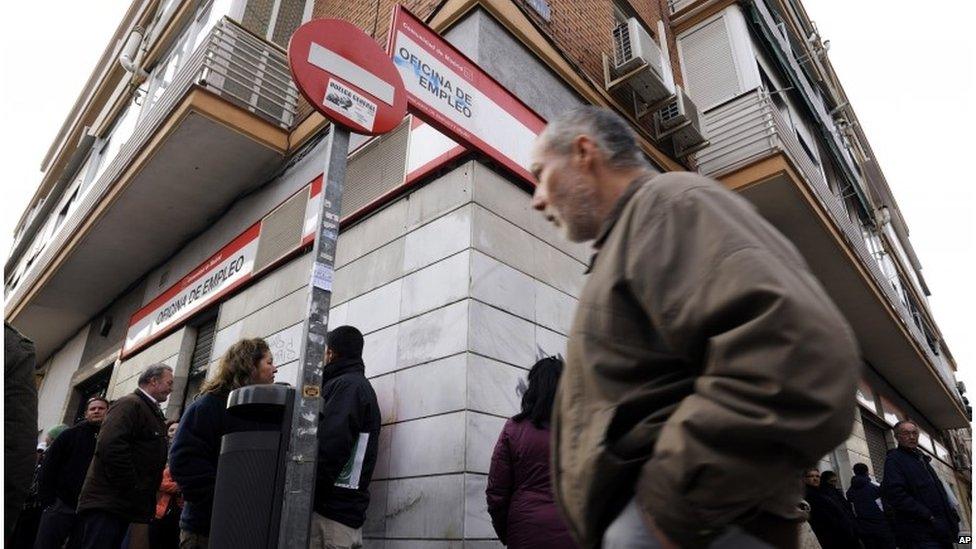
- Published18 December 2015
- Published10 December 2015
